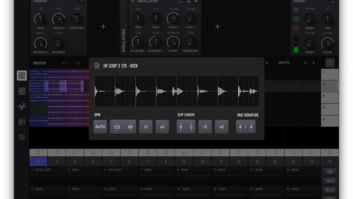Washington — Federal Communications Commission (FCC) chairman Kevin Martin this week agreed to coordinate DTV field tests to identify areas with problematic over-the-air signal reception and other issues before completion of the digital TV transition next February.
Martin’s decision came in a response to a letter calling for such action from FCC commissioner Michael Copps, who expressed concern about digital signal reception issues identified in a recent Centris study.
That study concluded that using the Antenna Web model, serious gaps exist in broadcast coverage areas, particularly at distances of 35 miles and farther from transmission sources.
In addition to running more limited field tests, Copps also said he has a strong preference “to actually switch a small number of markets to all-digital service before the national transition date.”
“Broadway shows open on the road to work out the kinks before opening night,” Copps said. “Our single transition date does not afford us the luxury of a built-in learning curve. We have one chance to get this right — one opening night.”
The more limited DTV field tests, Copps said, “would not raise the logistical concerns of a full-scale trial because the analog signals in these markets would remain on throughout the community.”
He suggested that individual households volunteer to switch to digital reception early and participate in the testing process.
Copps said the field tests could explore the following:
· Test DTV reception to see whether consumers could lose access to certain channels they currently receive when the digital switch-over occurs.
· Test antennas to see if consumers will need new ones in order to transition to digital service.
· Assess cable/satellite coordination to see that they are adequately prepared to receive and pass through broadcasters’ digital signals in February 2009.
· Study offering practical assistance in DTV equipment installation to those who require it.
· Determine the functionality of DTV equipment with such systems as closed captioning and V-Chip protection.
· Monitor consumer reactions to the difficulties, costs and benefits of the DTV transition.
In response, Martin said, “I will ask our DTV Task Force to coordinate with various industry stakeholders to begin exploring how we could undertake many of these initiatives, including the more limited DTV field tests, in a timely fashion.”
“As Chairman, I am committed to taking whatever actions are necessary to minimize the potential burden the digital transition could impose on consumers and maximize their ability to benefit from it,” he concluded.
Responding to Martin’s decision, Centris said it “applauds both Copps and Martin for taking proactive steps that will provide valuable insight into potential issues consumers will face on a local level and allow time for any necessary midcourse adjustments to ensure the success of the DTV transition.”
“Since the release of the Centris study, our position has been and remains to increase dialogue on the national, regional and local level with respect to the issue of digital TV receptivity and the need for consumers to consider antenna upgrades.”
Centris said its research found there to be increased risk in receptivity in regional markets depending on various topographies, distances, and home antenna options.
“This is a local issue that needs to be addressed on a local level,” Centris said.
Centris is currently working with and providing data to all segments of the television industry including broadcasters, multichannel providers, associations, equipment manufacturers and retailers.
The organization’s goal is “to ensure that all issues impacting the DTV transition (including local reception issues, consumer awareness locating and profiling over-the-air-households on a local basis) are being addressed to achieve a successful move from analog to digital TV.”













